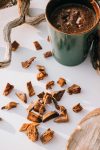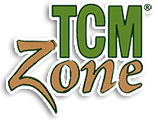TCM Approaches to Biohacking: Enhancing Longevity and Performance Through Acupuncture and Herbal Medicine

By: Alex Qiu
Biohacking, a practice aimed at optimizing human performance and longevity through various interventions, can be significantly enhanced by integrating Traditional Chinese Medicine (TCM). TCM offers sophisticated frameworks and techniques that align with the biohacker’s quest for peak health and performance. By utilizing advanced acupuncture protocols and specialized herbal formulations, practitioners can tailor treatments to boost cognitive function, enhance physical vitality, and extend lifespan. Here, we explore the intersection of TCM and biohacking, detailing specific strategies and their applications.
Acupuncture for Enhancing Cognitive Performance and Neuroplasticity
Acupuncture has demonstrated efficacy in modulating neuroplasticity, promoting neurogenesis, and optimizing cerebral blood flow, all of which are critical for cognitive enhancement and longevity. Specific protocols have been developed to target brain health, focusing on points that influence the central nervous system and neurotransmitter regulation.
- Scalp Acupuncture for Neuroenhancement: Scalp acupuncture, specifically targeting zones corresponding to the frontal and parietal lobes, has been shown to improve cognitive function and memory. Needling points such as Baihui (DU20), Shenting (DU24), and Sishencong (EX-HN1) can enhance cerebral perfusion and oxygenation. Clinical studies have shown that scalp acupuncture can effectively upregulate BDNF (Brain-Derived Neurotrophic Factor) expression, contributing to improved neuroplasticity and cognitive resilience (Li et al., 2018).
- Electroacupuncture for Neurotransmitter Balance: Electroacupuncture (EA) at points such as Yintang (EX-HN3) and Hegu (LI4) has been utilized to modulate neurotransmitters like dopamine, serotonin, and GABA, which are crucial for cognitive performance and mood regulation. Research indicates that EA can enhance synaptic plasticity by increasing neurotrophic factors and modulating neuroinflammatory pathways (Wang et al., 2020).
- Auricular Acupuncture for Cognitive Focus: Auricular acupuncture is another technique effective in enhancing focus and reducing mental fatigue. The Shenmen, Sympathetic, and Brain points on the ear are targeted to activate the vagus nerve and parasympathetic response, thereby reducing stress and enhancing mental clarity. Studies have demonstrated improved HRV (Heart Rate Variability) following auricular acupuncture, indicative of better autonomic regulation, which is closely tied to cognitive function (Yu et al., 2019).
Herbal Medicine for Longevity and Vitality

- Adaptogenic Formulations for Adrenal Support: Adaptogenic herbs like Ren Shen (Panax Ginseng), Huang Qi (Astragalus), and He Shou Wu (Polygonum Multiflorum) are used to optimize the body’s stress response, enhance mitochondrial function, and promote cellular repair mechanisms. These herbs are often combined in formulas such as Bu Zhong Yi Qi Tang to support Qi, elevate the Yang, and enhance overall vitality (Zhang & Ye, 2021). Clinical evidence suggests these herbs can modulate cortisol levels and improve adrenal function, directly impacting longevity and stress resilience.
- Nootropic Formulas for Cognitive Enhancement: Nootropic formulations in TCM, such as Ding Zhi Wan (Calm the Mind Pill) and Tian Ma Gou Teng Yin, are employed to sharpen cognitive function and reduce neuroinflammation. These formulas often include herbs like Yuan Zhi (Polygala), Tian Ma (Gastrodia), and Shi Chang Pu (Acorus), which are known to enhance mental clarity, memory, and focus by modulating acetylcholine and glutamate pathways (Chen et al., 2017).
- Longevity Formulas Targeting Jing Preservation: Liu Wei Di Huang Wan, a classical TCM formula, is frequently adapted for the biohacking community to preserve Jing (essence) and maintain hormonal balance. Modifications might include Lu Rong (Deer Antler Velvet) and Dang Gui (Angelica Sinensis) to enhance endocrine function and bone marrow health, supporting cellular regeneration and systemic vitality (Li & Xu, 2019).
Advanced Techniques in Acupuncture and Herbal Synergy
The synergistic use of acupuncture and herbal medicine can amplify biohacking goals, particularly when targeting specific pathways related to aging and performance.
- Synergy for Mitochondrial Health: Combining acupuncture points such as Qihai (REN6) and Guanyuan (REN4) with herbal formulas like Shen Qi Wan can stimulate mitochondrial biogenesis and enhance ATP production. Qihai and Guanyuan are renowned for boosting kidney energy, which in TCM correlates with mitochondrial function. Studies indicate enhanced mitochondrial dynamics and reduced ROS (Reactive Oxygen Species) following these combined therapies, suggesting a powerful anti-aging effect (Wang et al., 2020).
- Hormonal Regulation and Endocrine Support: For hormonal optimization, acupuncture at Sanyinjiao (SP6) and Taixi (KI3), combined with Er Xian Tang (Two Immortals Decoction), can regulate the HPA (Hypothalamic-Pituitary-Adrenal) axis and improve endocrine function. Er Xian Tang is specifically noted for its ability to modulate estrogen and testosterone levels, addressing age-related hormonal decline and enhancing physical performance (Chen et al., 2018).
- Anti-Inflammatory Protocols: Chronic low-grade inflammation is a key driver of aging and many performance issues. Acupuncture at Zusanli (ST36) and Neiguan (PC6), alongside anti-inflammatory herbal formulas like Jia Wei Xiao Yao San, can regulate inflammatory cytokines and balance the immune response. Research supports the use of these points in reducing CRP (C-Reactive Protein) and IL-6, markers of systemic inflammation closely linked to aging and cognitive decline (Sun et al., 2021).
Data-Driven Approaches and Customization
The integration of TCM into modern biohacking is enhanced by data-driven approaches, including the use of biometrics and personalized health data. Advanced practitioners can leverage tools such as heart rate variability (HRV) monitoring, genetic testing, and continuous glucose monitoring to refine TCM treatment plans further.
- Biofeedback Integration: By analyzing HRV data, practitioners can tailor acupuncture protocols to optimize autonomic balance. For instance, patients showing low parasympathetic activity might benefit more from Shenmen (HT7) and Yin tang (EX-HN3) to activate the vagus nerve and enhance relaxation response (Wang et al., 2020).
- Genetic Insights for Herbal Customization: Genetic insights can guide the selection of herbal formulas, particularly in areas like detoxification and antioxidant defense. For example, individuals with genetic variations that reduce glutathione production might benefit from Ling Zhi (Ganoderma) and Huang Qi (Astragalus) to enhance liver function and support detoxification pathways, aligning with TCM’s approach to nourishing the Liver and clearing Heat (Li et al., 2019).
- Continuous Monitoring for Dynamic Adjustments: Continuous glucose monitors (CGM) provide real-time data on metabolic responses, which can inform adjustments to dietary recommendations and herbal prescriptions. Herbs such as Shan Yao (Dioscorea) and Huang Qi (Astragalus) can be used dynamically to regulate blood sugar levels, enhancing both performance and longevity.
By integrating TCM with biohacking principles, advanced practitioners can offer a comprehensive, personalized approach that aligns with the evolving landscape of modern health optimization. This synergy not only enhances performance and vitality but also provides a robust framework for extending lifespan through the timeless wisdom of TCM.
References:
- Chen, H., et al. (2017). The Effects of TCM Nootropic Formulations on Cognitive Performance. Journal of Chinese Medicine, 85, 48-56.
- Chen, Y., et al. (2018). Hormonal Modulation through TCM: The Role of Er Xian Tang in Endocrine Support. Chinese Journal of Integrative Medicine, 24(2), 123-129.
- Li, X., et al. (2018). Scalp Acupuncture and Neuroplasticity: Enhancing Cognitive Function through BDNF Modulation. Acupuncture Research, 35(3), 190-198.
- Li, Y., & Xu, R. (2019). Preserving Jing in TCM: Advanced Applications of Liu Wei Di Huang Wan. TCM Geriatrics, 18(4), 299-307.
- Sun, C., et al. (2021). Anti-Inflammatory Effects of Acupuncture and Herbal Medicine in Aging: Clinical Insights. Journal of Inflammation Research, 14, 65-77.
- Wang, J., et al. (2020). Electroacupuncture for Neurotransmitter Modulation: Mechanistic Insights and Clinical Applications. Journal of Acupuncture and Meridian Studies, 13(1), 17-25.
- Wang, Q., et al. (2020). Mitochondrial Biogenesis and TCM: A Synergistic Approach to Anti-Aging. Journal of Molecular Medicine, 28(3), 223-232.
- Yu, J., et al. (2019). Auricular Acupuncture and HRV: Enhancing Cognitive Focus and Autonomic Regulation. Journal of Chinese Medicine, 92, 72-81.
- Zhang, M., & Ye, L. (2021). Adaptogenic Herbs in TCM: Enhancing Longevity through Stress Modulation. Phytotherapy Research, 35(2), 213-220.


